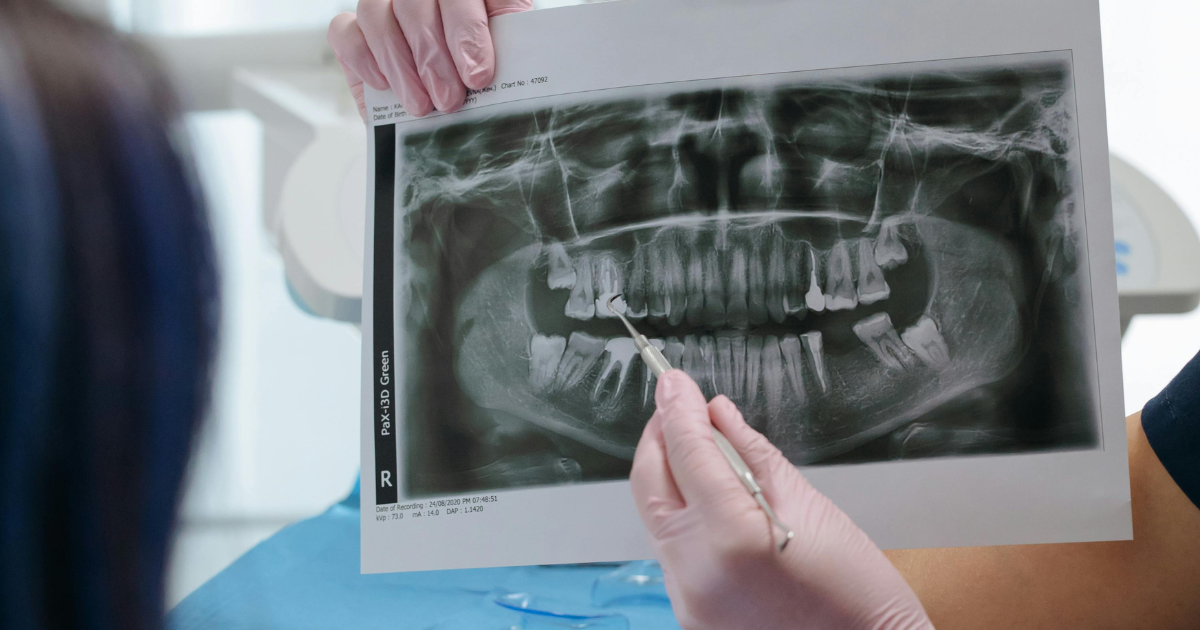How often should you go to the dentist?
Regular dental check-ups are crucial for keeping your teeth at their best. But how often should you go to the dentist? While many people assume the answer is “every six months”, in reality, it varies by person.
Reading time: 4 minutes

Even if you have no issues right now, regular dental check-ups are a key part of preventative care — helping improve your dental health in the long term.
How often should you go to the dentist for a check-up?
The most common medical advice is to have a dentist appointment every six months. This helps check for medical conditions, have regular maintenance, and carry out any additional work like fillings.
The truth is that timescales vary by person. Some may have health conditions requiring more regular visits, while others may not have ongoing issues. For example, a Health Technology Assessment report found that those with excellent oral health could attend a dentist every two years.
The best way to decide is to speak with your dentist who can give you personalised recommendations based on your oral health condition.
How often should you go to the dentist in the UK?
In the UK, the guidelines recommend consulting your dental practice for tailored advice. At a minimum, low-risk patients should still have a check-up every two years. Most people should attend every six to 12 months, while those with more severe conditions may go to the dentist up to every three months.
Why are regular dental visits important?
Research shows the many benefits of regular dental visits. One study found that those patients who continued visiting the dentist regularly every 12 months or less had better-than-average oral health. That’s because dentists don’t just solve current issues — they also prevent future problems.
Going to the dentist regularly has many other advantages, including:
● Checking the status of any ongoing dental problems.
● Spotting the early signs of possible future issues, such as oral cancer, cavities or gum disease.
● Maintaining good oral hygiene by seeing a dental hygienist.
Not only does visiting the dentist keep your smile shining today — it also helps prevent serious issues down the line.

What does a dental check-up involve?
A regular dental check-up is a vital part of your general healthcare and involves several steps:
- Asking about your general health and ongoing concerns.
- A thorough examination of your teeth, gums and mouth.
- Checking for oral diseases and issues like cavities.
- Taking X-rays of your teeth and mouth to check for deep-lying issues.
- Professional teeth-cleaning to remove build-up that your toothbrush and toothpaste can’t manage on their own.
- Advice on managing or improving your oral health.
- Building a plan for future dental management and a bespoke check-up frequency.
Your regular check experience will depend on the chosen dental clinic, your dentist will always personalise the approach based on his own expertise and evaluation of your needs.
When should I go to the dentist more often?
As we have seen, those at a lower risk of dental problems can visit the dentist less frequently than those who require more regular care. Some other factors may mean you need to go to the dentist more often, such as:
- Smoking: Smokers are more prone to specific dental issues, such as gum disease, and should be checked regularly.
- Diabetes: Those with diabetes may be more susceptible to oral health issues and need more frequent visits.
- Ongoing gum disease: Those living with periodontitis should see their dental professional to manage their oral health closely.
- Higher risk factors: Some people require more frequent cleanings as they are more prone to cavities or plaque and tartar build-up.
- Maintenance: Those with dental implants should visit their dentist frequently to maintain healthy teeth.
How can I keep dental appointments to a minimum?
Maintaining good oral hygiene habits every day is the key to keeping dental appointments to a minimum. You can help avoid dental issues with regular brushing teeth twice a day, flossing, using interdental brushes between your teeth, and using any other products your dentist has advised.
Likewise, a healthy lifestyle — avoiding sugary foods and tobacco products — may contribute to good oral health.